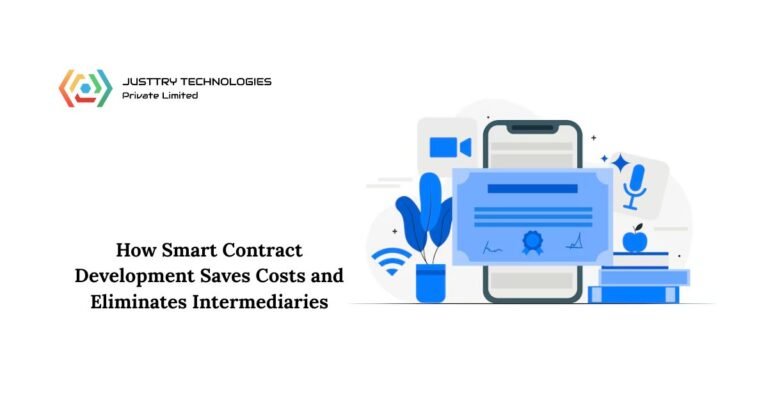The blockchain revolution has opened new frontiers for businesses, especially through tokenization. Whether launching a utility token, governance token, or security token, choosing the right token development services is a critical decision that directly impacts your project’s success. With a growing number of platforms, token standards, and service providers in the market, navigating this space can be overwhelming.
This comprehensive guide will help you evaluate, compare, and confidently select the best token development partner that aligns with your project goals, technical requirements, and long-term vision.
Why Token Development Services Matter
Before diving into the selection process, it’s essential to understand why professional token development services are vital for blockchain projects:
-
Security: Professionally developed tokens follow secure coding practices and undergo audits to prevent vulnerabilities.
-
Compliance: Experts ensure your tokens meet legal and regulatory frameworks (KYC/AML, SEC guidelines, etc.).
-
Scalability: Well-architected tokens can scale as your user base grows.
-
Interoperability: Properly designed tokens integrate seamlessly with wallets, exchanges, and dApps.
-
Efficiency: Outsourcing to experts allows you to focus on business development, fundraising, and marketing.
Types of Tokens You May Want to Develop
Before choosing a service provider, you must identify the type of token you need based on your business model:
1. Utility Tokens
-
Used for accessing services within a blockchain ecosystem.
-
Common in DeFi, gaming, and dApp platforms.
-
Typically deployed on Ethereum (ERC-20), Solana, BNB Chain, etc.
2. Security Tokens
-
Represent ownership in real-world assets like real estate, equity, or debt.
-
Require adherence to securities regulations (STO frameworks).
-
Popular in RWA tokenization, investment platforms, and funds.
3. Governance Tokens
-
Grant holders voting rights to influence the protocol or DAO operations.
-
Essential for community-driven ecosystems.
4. Non-Fungible Tokens (NFTs)
-
Unique digital assets representing art, collectibles, identity, or credentials.
-
Usually built on ERC-721, ERC-1155 (Ethereum) or Metaplex (Solana).
5. Stablecoins
-
Pegged to fiat currency or assets.
-
Requires robust economic models, oracle integrations, and compliance.
Knowing your token type helps shortlist service providers with domain-specific experience.
Key Features to Look for in Token Development Services
To ensure the long-term success of your token, prioritize services that offer the following core features:
1. Blockchain & Token Standard Expertise
-
Support for Ethereum (ERC-20, ERC-721, ERC-1155), BNB Chain, Solana (SPL), Polygon, Avalanche, TRON, and others.
-
Understanding of gas optimization, consensus mechanisms, and token economics.
2. Custom Smart Contract Development
-
Ability to build and deploy custom logic like staking, burning, minting, vesting, and more.
-
Secure, audited, and upgradeable smart contracts.
3. Security Audits
-
Comprehensive internal and third-party audits (CertiK, Hacken, etc.)
-
Mitigation of vulnerabilities such as reentrancy, overflow, and access control flaws.
4. Regulatory Compliance
-
Legal support or referrals for jurisdiction-specific token compliance.
-
KYC/AML integration for STOs or regulated platforms.
5. Tokenomics Consultation
-
Assistance in designing supply, allocation, vesting schedules, and incentive mechanisms.
-
Models that balance scarcity and utility.
6. Multi-Chain Deployment
-
Capability to launch tokens across multiple blockchains for maximum liquidity and reach.
-
Cross-chain bridge integration.
7. Integration Services
-
Compatibility with wallets (MetaMask, Trust Wallet), explorers, and exchanges.
-
Integration with DeFi platforms, staking portals, or dApps.
8. Post-Launch Support
-
Ongoing maintenance, upgrades, and bug fixes.
-
Community management and token listing assistance.
Evaluating Token Development Companies: Step-by-Step Guide
Now that you know what features to look for, here’s how to effectively choose a token development partner.
Step 1: Define Your Requirements
Start by outlining your needs:
-
What blockchain will you use?
-
Token type and features?
-
Target audience and industry (DeFi, gaming, RWA)?
-
Compliance requirements?
-
Timeline and budget?
Having clarity upfront helps align expectations and streamline communication.
Step 2: Check Their Portfolio
Look for:
-
Previous projects in your niche.
-
Use cases that mirror your vision.
-
Tokens already listed on exchanges or integrated into live platforms.
A strong portfolio shows the provider’s real-world capabilities.
Step 3: Assess Technical Capabilities
Ask the following:
-
Which token standards do you support?
-
Do you provide custom smart contract logic?
-
How do you ensure scalability and gas efficiency?
-
Can you build multi-chain or Layer-2 compatible tokens?
Bonus points if they use advanced tools like Hardhat, Truffle, or Foundry.
Step 4: Verify Security and Audit Practices
Security is non-negotiable. Look for:
-
Smart contract audits by reputed firms (or in-house audit reports).
-
Transparent documentation and code samples.
-
A track record of secure launches.
Ensure the provider follows best practices like OpenZeppelin libraries, testnets, and CI/CD workflows.
Step 5: Evaluate Legal and Compliance Support
For security tokens or jurisdiction-sensitive launches:
-
Ask about legal partnerships or in-house expertise.
-
Understand how they handle KYC, AML, and fundraising compliance.
-
Confirm if they can support STO portals or investor dashboards.
Step 6: Check Reviews, Ratings, and Reputation
-
Visit Clutch, GoodFirms, or Trustpilot.
-
Look for testimonials, client interviews, and case studies.
-
Join crypto communities (Telegram, X, Reddit) to ask for feedback.
Reputation is a strong indicator of delivery and reliability.
Step 7: Compare Pricing and Packages
Not all providers offer transparent pricing. Ask for:
-
Breakdown of services and timelines.
-
Custom vs. white-label pricing.
-
Post-launch support fees.
Balance your budget with quality and features. Cheap solutions can compromise security and scalability.
Step 8: Look for End-to-End Services
The best partners offer full-spectrum token development, including:
-
Ideation and whitepaper assistance
-
Smart contract development
-
Frontend and dApp integration
-
Token marketing and community-building
-
Exchange listing support
All-in-one solutions reduce coordination issues and save time.
Questions to Ask a Token Development Provider
Prepare a checklist of key questions:
-
What blockchains and token standards do you specialize in?
-
Can I see your portfolio or recent case studies?
-
How do you ensure smart contract security?
-
Do you help with tokenomics design?
-
What compliance support do you offer?
-
Do you provide post-launch upgrades and maintenance?
-
Can I get a demo or prototype before committing?
-
How do you handle cross-chain or Layer-2 compatibility?
These questions will help gauge transparency, technical strength, and cultural fit.
Red Flags to Avoid
Not all providers are trustworthy. Avoid those who:
-
Promise exchange listings without regulatory clarity
-
Offer too-good-to-be-true pricing
-
Lack a public portfolio or GitHub presence
-
Use templated contracts without customization
-
Don’t mention security audits or documentation
Due diligence now can prevent costly failures later.
Emerging Trends in Token Development (2025 and Beyond)
To future-proof your token, consider these trends:
-
Modular Smart Contracts: Flexible architectures for upgrades and feature expansion.
-
AI-Powered Token Governance: AI agents influencing DAO voting and proposals.
-
ZK-Rollups & L2 Tokens: For low-cost, high-throughput applications.
-
Tokenization of Real-World Assets (RWA): Compliant on-chain ownership of real estate, bonds, and commodities.
-
Dynamic Tokenomics: Real-time adjustable token parameters via governance.
A good service provider should be actively implementing or researching these innovations.
Final Thoughts
Token development is more than just writing a smart contract—it’s about building a scalable, secure, and compliant ecosystem that thrives. Whether you’re a Web3 startup, enterprise, or creator, choosing the right token development services can define the trajectory of your project. Take your time to assess providers thoroughly, ask the right questions, and look beyond just cost. Prioritize experience, security, and long-term support to build a successful token economy.





